Medical frat is split over latest National Medical Commission restrictions for use of social media by doctors. But, Reels, ‘likes’ and followers may have become an inextricable part of patient agency and practitioner marketing
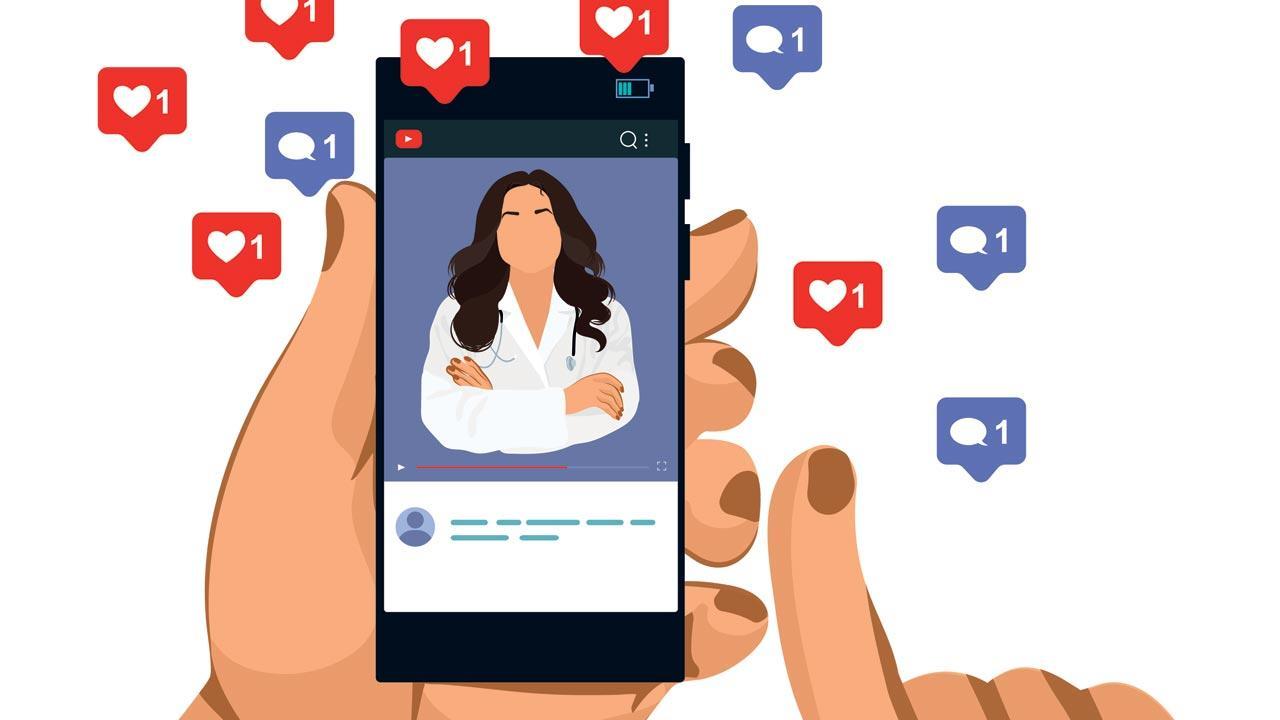
Representational images. Pic/iStock
Early this year, Dharmishtha Dagia felt a lump in her left arm. At first it wasn’t much of a bother, but soon it began to grow in size and very quickly it came to a point that if anything even slightly brushed against the growth, she felt a stabbing pain.
ADVERTISEMENT
The 35-year-old was soon recommended a few laparoscopic and endoscopic surgeons, and a deep dive on them ensued on the Internet. She went through their social media handles, and carefully reading each review on medical websites, going as far as to visit the profile of each reviewer to see if it was authentic or paid. “There are many paid websites where doctors have great reviews, but I never take them seriously,” says the Kandivili resident. “I trust Google reviews for unbiased ones. I check the doctors’ profiles on LinkedIn, Instagram, X (formerly, Twitter) and see the videos they share. If all this seems genuine, then and only then do I go for a consultation, like I did for my cyst surgery in my upper arm in August. Instead of going from one bad doctor to the other, where you can feel like a guinea pig as they pursue a trial-and-error diagnosis, the Internet points you in the direction of one—and most importantly—the right doctor.”
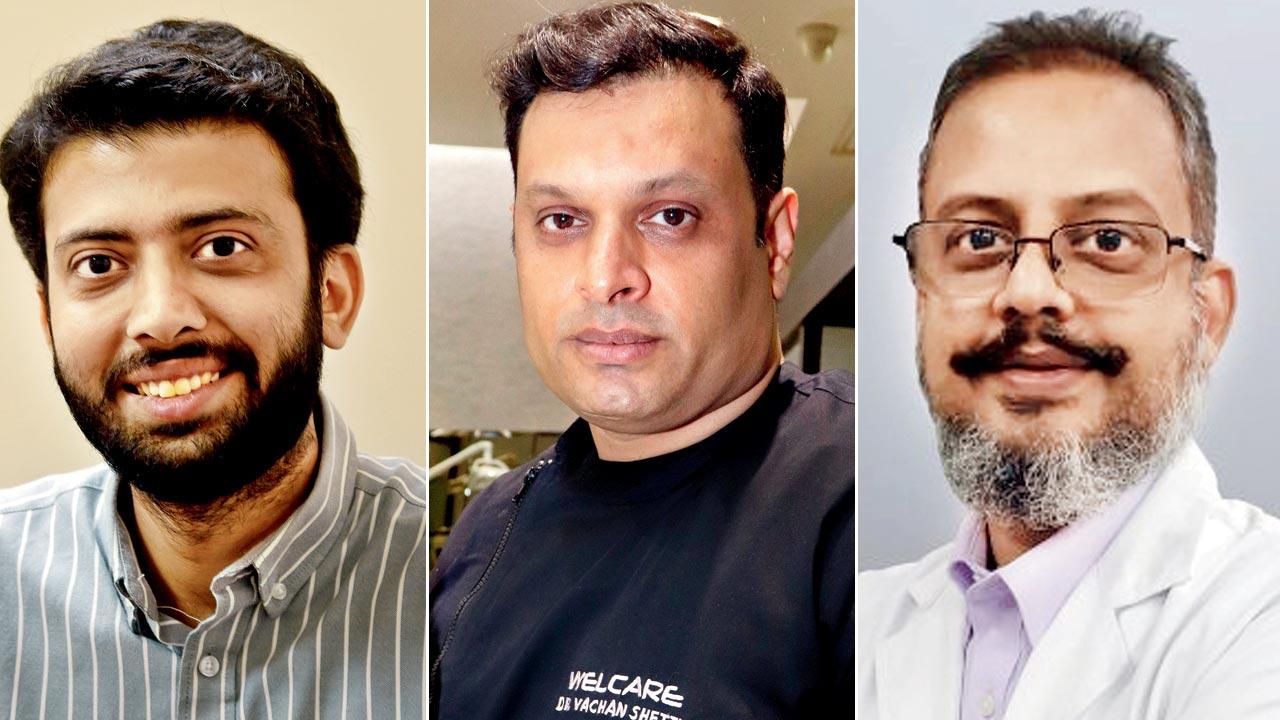 Dr Sohil Gala; Dr Vachan Shetty and Dr Nilanjan Banerjee
Dr Sohil Gala; Dr Vachan Shetty and Dr Nilanjan Banerjee
The celebrity manager is one of millions of Indians who use social media to look for health advice, find doctors and verify the one to consult.
On August 3, the National Medical Commission (NMC) published guidelines for Registered Medical Practitioners (RMPs) on how to conduct themselves on social media. The guidelines have been put on hold for the moment, but public debate over them has uncovered the government’s failure to regulate the mushrooming of unqualified and unethical advice and practices by “celebrity” doctors or health influencers, post COVID.
The medical fraternity is equally divided: One faction believes its high time celebrity doctors are held accountable for paid collaborations and demand complete removal of recommendations, ratings and reviews of doctors from social media. On the other side are those who hold that reviews on platforms such as Google support consumer rights.
Dr Vachan J Shetty belongs to the former camp and believes in working from the ground up to the earn the trust of patients and build a thriving practice. “I have been practising for 23 years,” says the endodontist who set up Welcare Dental Centre in Andheri (W) in 2004. “Early in my career, I would have seen around 80 patients a day. But as word of my work got around, my practice grew, allowing me to step back and see, maybe, only 10 patients every day. If you work hard and diligently, no one can stop any doctor from doing well.”
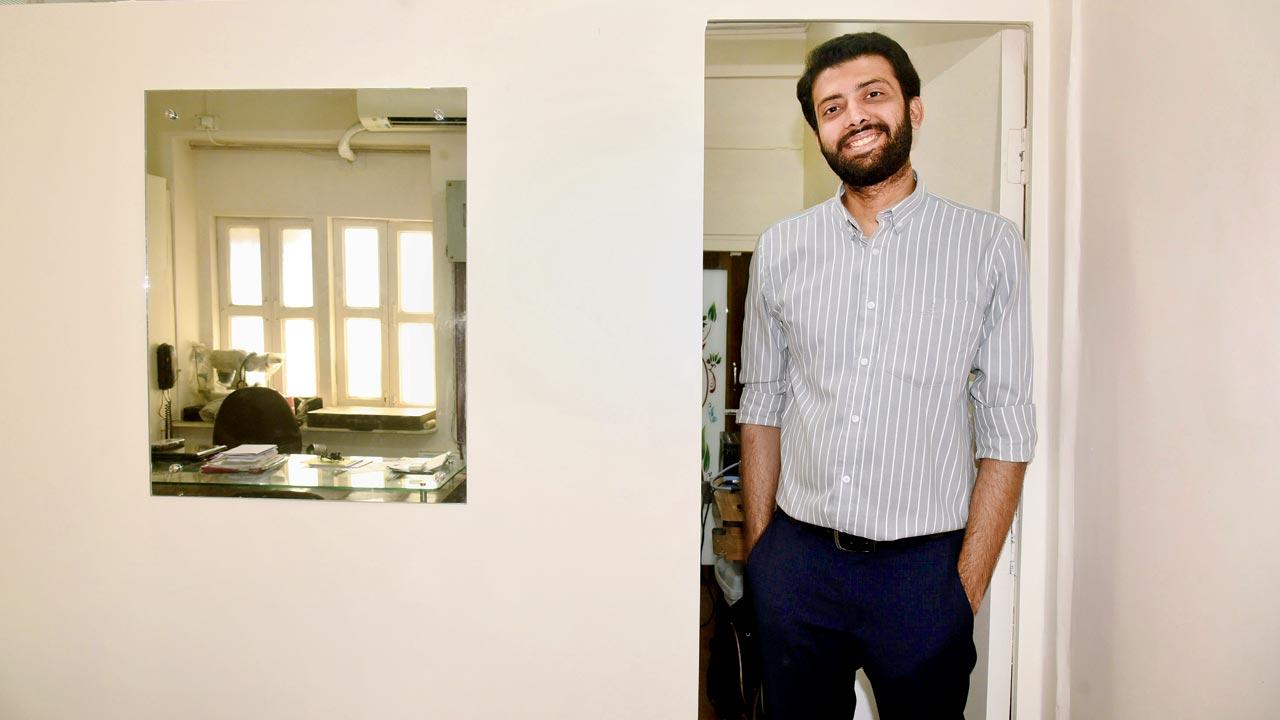 Dr Sohil Gala, feels like a blanket ban like the use of recommendations and testimonials might not be practical in today’s world where patients who often don’t know what is happening to them and turn to social media to know more about their symptoms. Pic/Atul Kamble
Dr Sohil Gala, feels like a blanket ban like the use of recommendations and testimonials might not be practical in today’s world where patients who often don’t know what is happening to them and turn to social media to know more about their symptoms. Pic/Atul Kamble
One of the proposed NMC rule bans soliciting patients through social media, directly or indirectly, calling it unethical. “The rules are the need of the hour,” stresses Dr Shetty. “For instance, someone who had never consulted with us, left a negative review on Google. Another reviewer called us money-minded, when in fact he had dental work worth only R1,000 done. How can [one guarantee that] these reviews will be authentic?”
Shetty has only 29 reviews on Google and believes the only ones than can be trusted are those that travel word-of-mouth. “I have no problem with doctors with a monthly advertising budget of R1 lakh,” he says, “But often, their patients come to us after burning their fingers, choosing now an experienced doctor. Only a good doctor can recommend what kind of treatment you need; Google can only tell you what it entails. It’s also the individual’s responsibility to find the right doctor in the area, for say a root canal, by seeking recommendations from neighbours and friends.” Shetty’s clinic next to DN Nagar Metro station does have an Instagram presence, but he insists he maintains it just to remain at par with current trends—only four to five per cent of his business comes from social media.
But does Dagia represent a chunk of patients when she’s crestfallen at the thought of removal of testimonials from social media? “Millennials like me are considered the activators of social media,” she says, “we use it and consume it not just for entertainment, but for mental and physical health. I really don’t know what I’d do if I couldn’t see a doctor’s reviews anymore.”
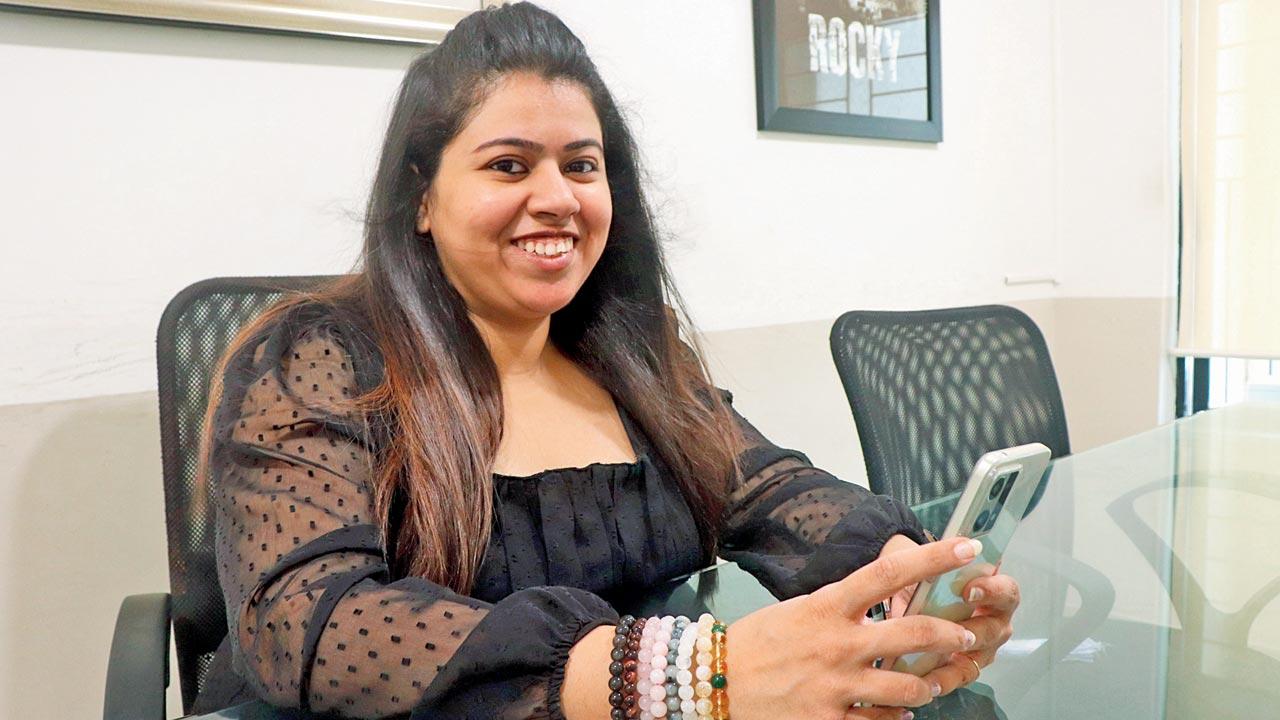 Dharmishtha Dagia is heavily dependent on reviews, ratings and testimonials before choosing a health doctor she finally consults with. Pic/Anurag Ahire
Dharmishtha Dagia is heavily dependent on reviews, ratings and testimonials before choosing a health doctor she finally consults with. Pic/Anurag Ahire
But a registered medical professional’s (RMP) “online personality” may not testify his/her (paramount) offline skills, as 29-year-old Masha Arabi found out.
One key point in the NMC’s gazette notification specifies “Medical Ethics as a Guiding Principle: The use of social media by RMPs should adhere to the broader principles of medical ethics. This means that ethical considerations that apply in offline medical practice should also be applied to their online conduct.”
Arabi, who shuttles between Mumbai and Mangalore, chose a gynaecologist because she featured on her friend’s Stories on Instagram. “My friend won a beauty pageant in Mangalore, and reposted her gynaecologist’s Instagram story congratulating ‘her patient’. I asked my friend whether the doctor was good, and she affirmed it.”
However, at the first consult itself, after inspecting her blood work, he began fear mongering instead of outlining a plan of action. “I was already struggling to lose weight and PCOD was making it harder to do so,” says the public relations professional, “Instead of telling me how all my symptoms were linked, what caused them and advising a line of treatment, he told me how things could escalate, ending with ‘if you don’t lose weight, you will die’.”
This brings to mind why Dr Shetty emphasised the profession needs a human touch more than a digital one, and good bedside manners above all else. Arabi now consults a gynaecologist her female friends recommended. “I didn’t really look up her recommendations online because I had learnt they didn’t mean anything,” she says. “All I needed to know was that my friends had been seeing this particular one for years, and she turned out to really suit me and
my sensibilities.”
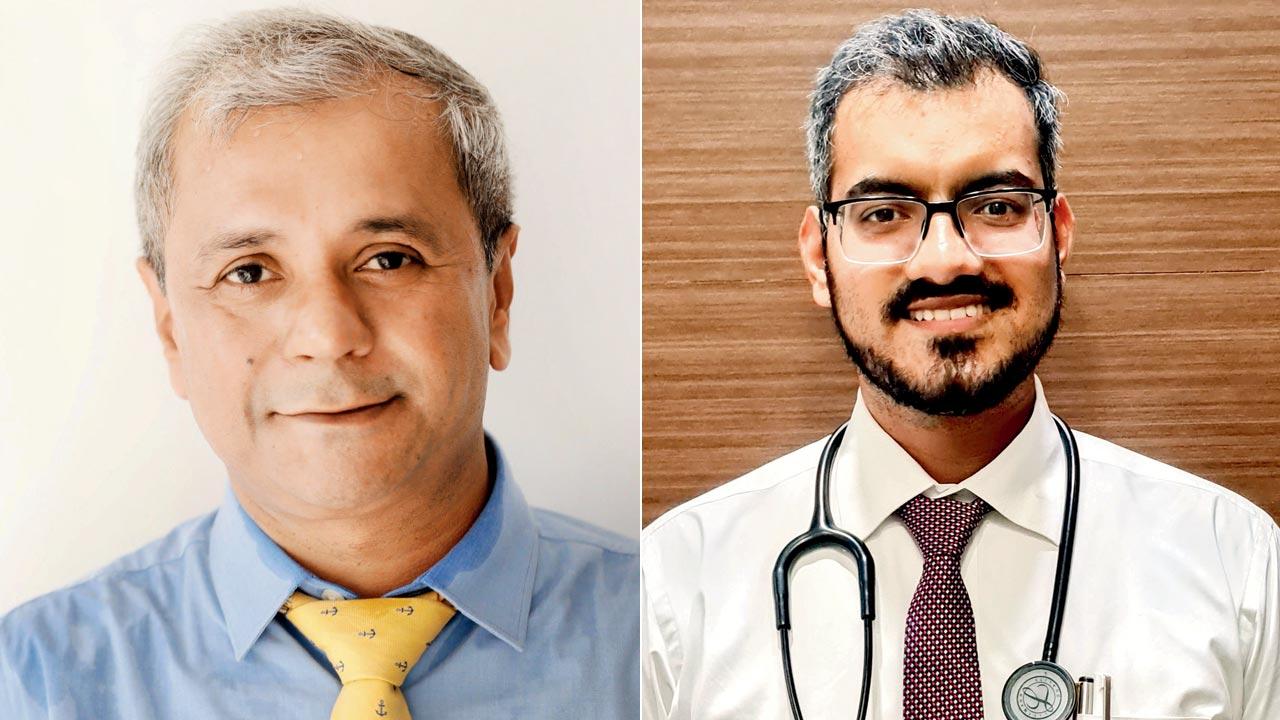 Dr Satish Bhatia and Dr Anuj S Tiwari
Dr Satish Bhatia and Dr Anuj S Tiwari
Dr Satish Bhatia, a cosmetic dermatologist with a quiet voice, connects with us via a phone call from London. “There are many doctors who are not qualified or giving extremely misleading advice on social media, causing many people to opt for the wrong kind of treatment,” he says. “There have been many instances of patients requesting procedures they’ve seen online, without a prognosis. Then they come to us for corrective measures for lip fillers or botox gone wrong.” He has to begin with blood tests and removing old fillers, and convince the patient to wait for at least 48 hours before undergoing the corrective procedure. “Many famous people come for such corrective treatments,” says Dr Bhatia, “as well as those who have undergone cosmetic procedures in Gulf countries, where they are not well-monitored. In India as well, the cosmetic procedure market is highly unmonitored, as opposed to, say, USA where doctors can immediately be sued for malpractice in case of a botched job.”
Some of the most contentious and divisive of the proposed rules are:
1) Directly or indirectly soliciting patients through social media is unethical.
2) Avoid requesting or sharing patient testimonials, endorsements, or reviews on social media.
3) RMPs must not engage in practices such as purchasing “likes”, “followers”, or manipulating search algorithms. They should not use software that charges fees for higher ratings or solicit patients through such methods.
4) RMPs should refrain from posting patients’ photographs or scans (positron emission tomography (PET) or computed tomography (CT)) on social media. Once posted, these images become the property of the social media platform or the public at large.
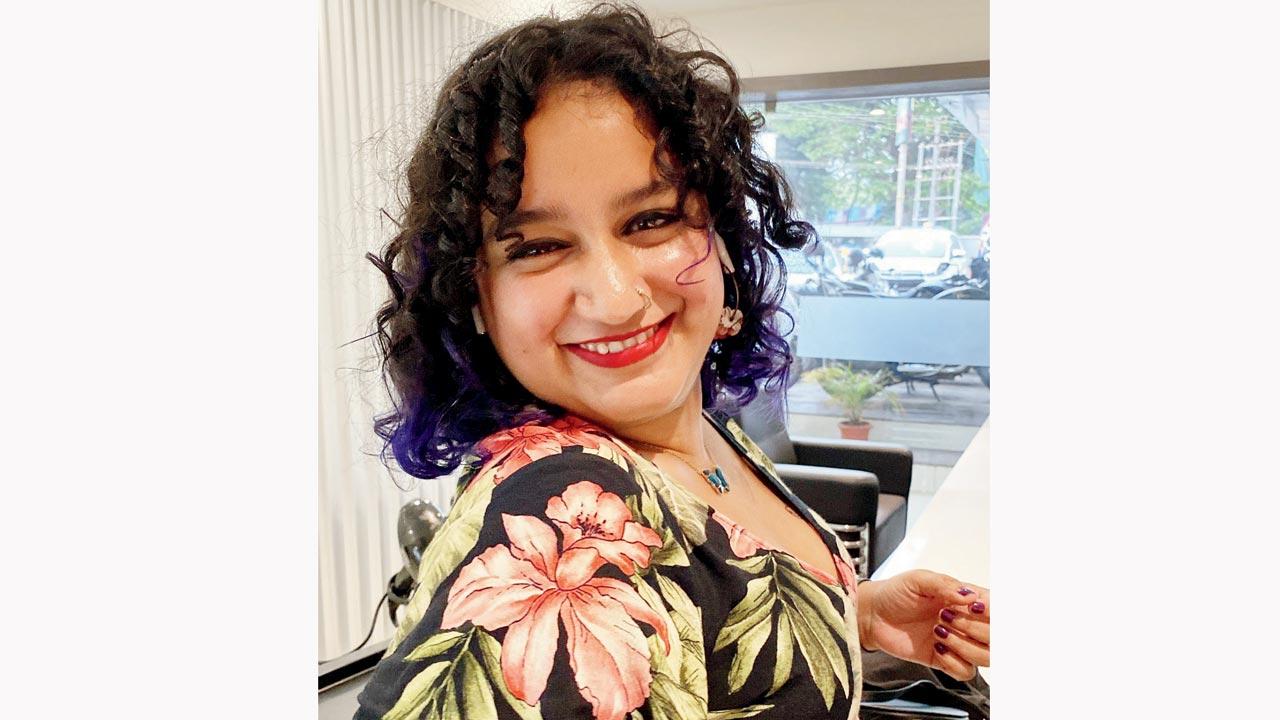
Masha Arabi has had a bad experience using social media to find a doctor
Dr Nilanjan Banerjee, a General Physician in Pune and member of the Medical Council of India (MCI), says public feedback can help balance the power dynamic between doctors and patients, lowering risk of that phenomenon peculiar to doctors: The God complex. “Ratings and reviews of doctors and healthcare facilities play a pivotal role in enhancing patient experience and overall healthcare quality,” he says. “Firstly, these assessments provide valuable insights for others, allowing them to make informed decisions. They can research quality of care, the staff’s communication skills, waiting times, and effectiveness of treatments. This transparency fosters trust and empowers individuals to choose healthcare providers that best align with their needs and preferences.”
This kind of social media accountability has pushed doctors to work on the bedside manner and communication skills. “Moreover, these evaluations incentivise healthcare professionals and facilities to maintain high standards of service,” Dr Banerjee continues, “Doctors and staff who consistently receive positive ratings are encouraged to uphold their exceptional standards, while those with lower scores may be prompted to improve their practices. The competitive nature encourages a commitment to excellence and continuous improvement, ultimately benefiting patients.”
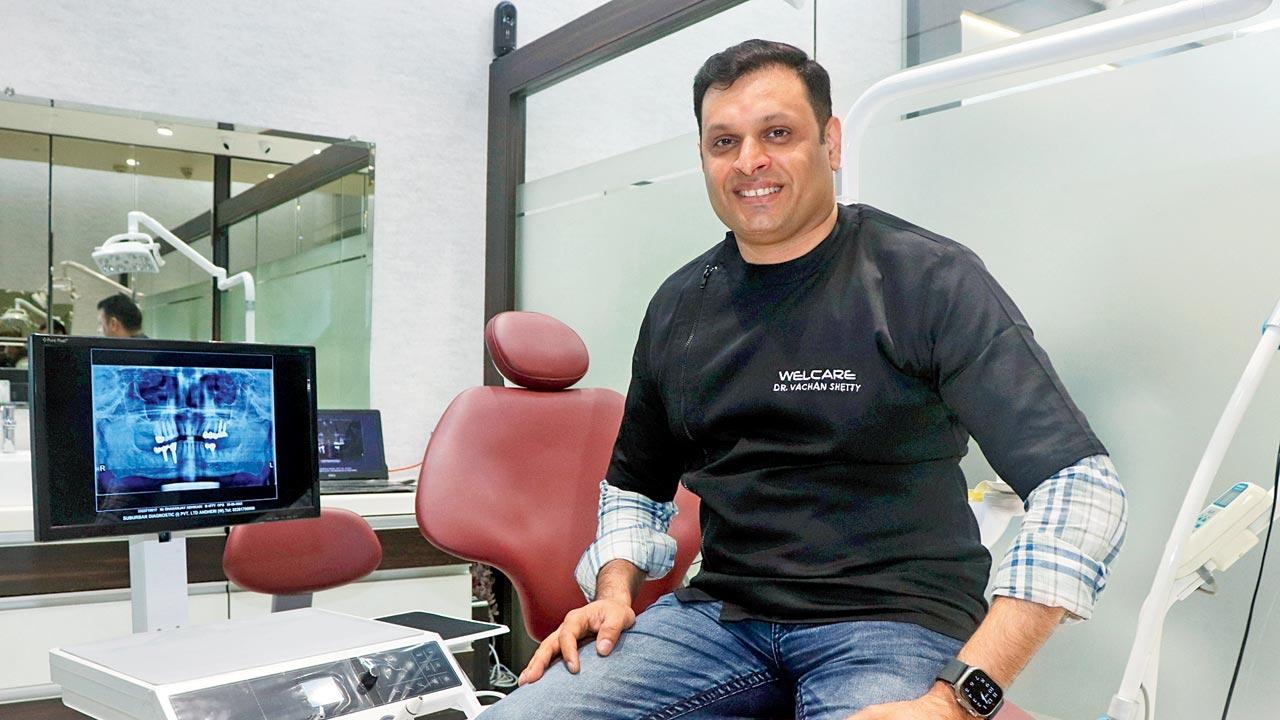 Dr Vachan Shetty believes that bedside manners and hard work outgun flashy videos and positive google reviews. Pic/Anurag Ahire
Dr Vachan Shetty believes that bedside manners and hard work outgun flashy videos and positive google reviews. Pic/Anurag Ahire
Dr Sohil Gala an Ear, Nose, and Throat surgeon agrees with a few of the proposed NMC rules, such as not giving advice in areas that are not your expertise. “A nutritionist cannot be making reels on mental health or eye disease,” says the founder of the Comprehensive ENT Clinic at Grant Road, “while it may not be wrong medico-legally, it is ethically.” Like many of his peers, the ENT practitioner began making videos during COVID. His explainer on the condition called Tongue-tie or ankyloglossia, which restricts the tongue’s range of motion, caught traction. “I explained the correlation between ankyloglossia and snoring, sleep apnoea, and jaw placement issues,” says the doctor, “Many of my friends, colleagues and patients shared the video, and those who were not directly connected to me, came to know of me.”Dr Gala believes the power of the medical hive mind could be harnessed for good by adhering to the sacred doctor-patient confidentiality pact. “If we want as many points of view as possible for a very complicated case, and cannot reach out to our peers individually, social media platforms can help immensely,” he points out. “A blanket ban is not advisable; ideally, we should have the leeway to post medical data, without identifying the patient.” With his finger on the pulse of the generation, the 34-year-old predicts that the necessity of a social media presence for medical practitioners is not too many years away.
Dr Anuj S Tiwari, a GP at RN Cooper hospital, too finds the proposed ban on exchange of scans and medical reports on social media, a form of gatekeeping medical information. “On X,” he says, “there is a lot of exchange of information, reports, videos of procedures, and doctors from across the globe give their two cents. However, there has been some balance— patients can’t take general advice for their specific case.
Those professionally managing social media presence for medical practitioners, are already mindful of ethics and protocol, and feel many of the restrictions may not be practical. As Maryam Raja, a PR professional and social media manager, says, “India has an estimated 71 per cent smartphone users, making it the second most digitalised country in the world, after China. So a vast majority of the population—across class, gender, and age—has access to the Internet and social media. They are using it not just to connect to people across the globe but also as an educational tool. Be it insurance policies, restaurants, clothing brands, or medical services, consumers search for and verify everything online. Therefore, the use social media has now stretched to raise awareness about health, share medical information, promote related initiatives, and educate the public. We see doctors maintaining patient confidentiality, avoiding sensationalism, and ensuring the shared information is evidence-based and credible. While the intent of the NMC guidelines is to reinforce these, it might limit knowledge. We should trust that our doctors will provide authentic and verified information on public platforms.”
While the proposed rules are currently under consideration, doctors on social media have paused before hitting Post, hoping the diktat will lose steam or be revised in the very least.
Some key NMC Principles
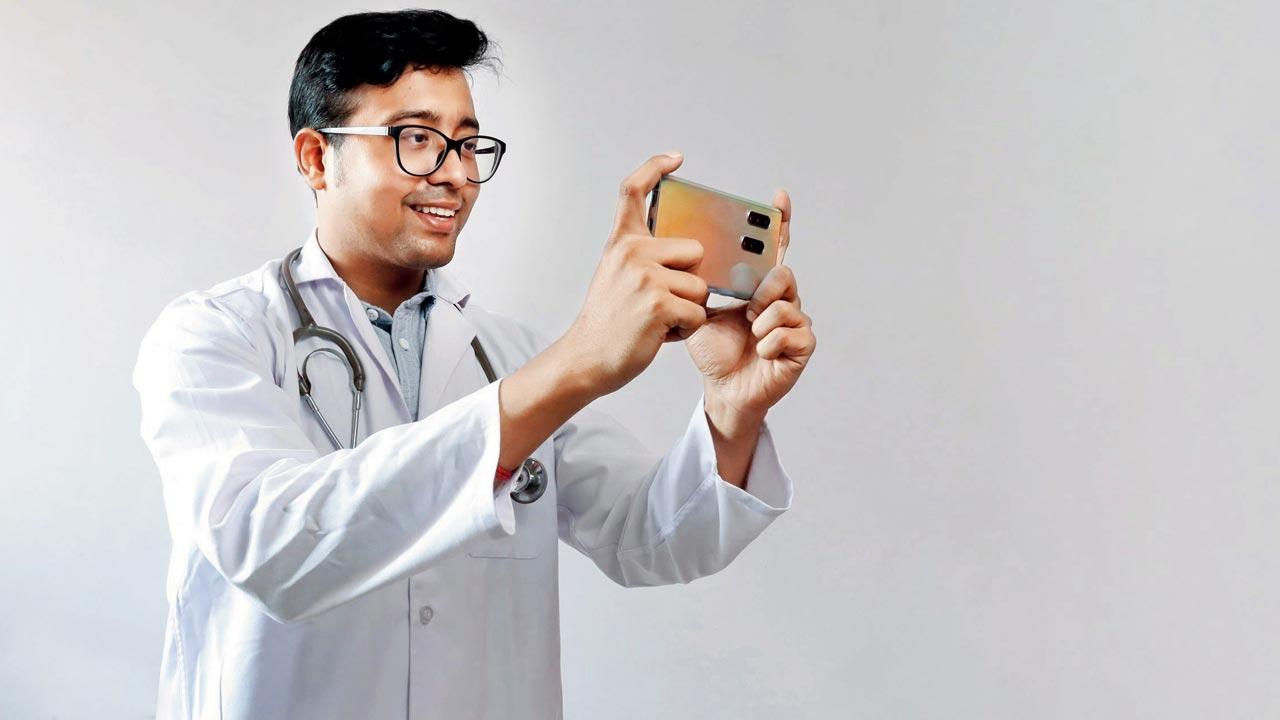
1 RMPs should avoid discussing the treatment of patients on public social media or prescribing medicine to patients on the public social media platform. If a patient approaches doctors through public social media, the doctor should guide the patient toward a telemedicine consultation or in-person consultation as the
situation warrants
2 RMPs should not post patients’ photographs or scan images (CT/PET scans) on social media. Once an image is posted in social media, it becomes data that is owned by the social media company or the general public
3 RMPs should not directly or indirectly indulge in the practice of purchasing “likes”, “followers”, or paying money so that search algorithms lead to their name being listed at the top or registering on software programs (apps) that charge fees for higher ratings or soliciting patients
4 RMPs should not request or share patients ’testimonials or recommendations or endorsements or reviews in social media
5 RMPs should refrain from sharing images of healed/cured patients, or surgery/procedure videos or images displaying impressive results under any circumstances
6 RMP is allowed to share educational material for the information of the general public. However, communication should be limited to the expertise of the RMP
7 RMP’s webpage should also follow the same guidelines as above
8 Soliciting of patients directly or indirectly through social media is unethical
How hospitals are using social media
. Jaslok Hospital’s website has videos by in house doctors explaining PCOS or what to do in a case of epileptic fit. The same posts are on its accounts on LinkedIn (14,636 followers), Instagram (6,000+ followers), Facebook (28,000 followers) and X (336 followers)
. Nanavati Max Super Speciality Hospital has testimonials by cancer survivors, and explainer videos on diabetes and pulmonary diseases on all social media platforms such as Instagram (5,000 followers), X (4,000 followers), Facebook (76,000), and LinkedIn (31,000 followers)
. Fortis Hospital beems live medical conferences, and health advice from gynaecologists and surgeons on Facebook (two lakh followers), Instagram (two lakh followers), X (one lakh followers), and LinkedIn (over 3.5 lakh followers)
 Subscribe today by clicking the link and stay updated with the latest news!" Click here!
Subscribe today by clicking the link and stay updated with the latest news!" Click here!







